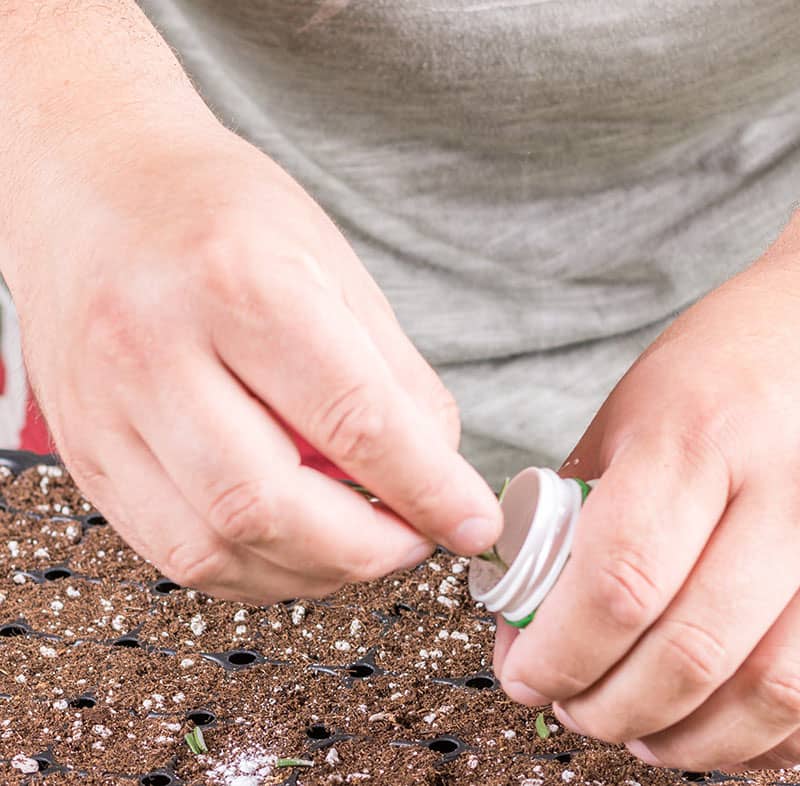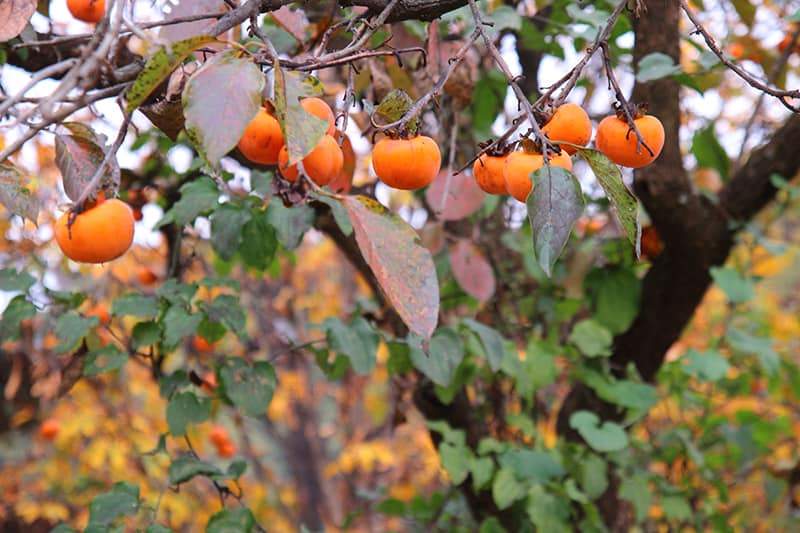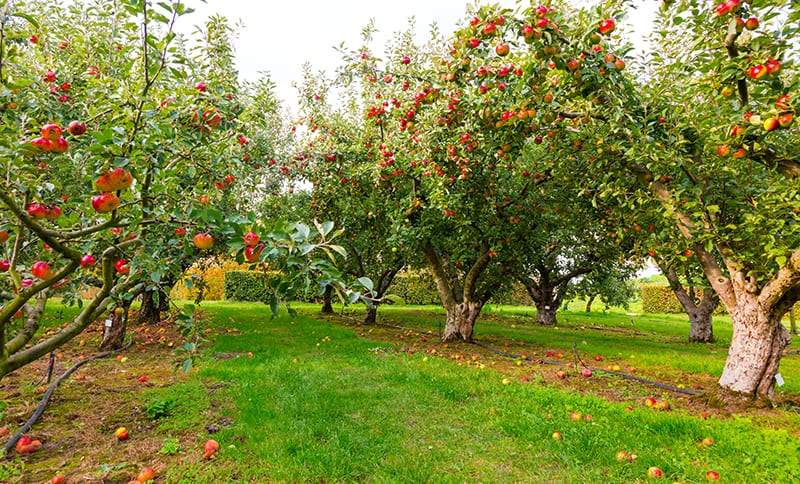Trees are among the most notable plants in any landscape. But growing and ... Read More
- Gardening > Propagation >
- Best Rooting Hormones For Propagation
Best Rooting Hormones For Propagation
Related Content
-
Tree Care Tips & Techniques
-
All about Spider Mites and How to Get Rid of Them
Home growers and gardeners tend to be quick to learn one of the most uncom... Read More
-
Epsom Salt for Plants – Tips For Using Epsom Salt In The Garden
If you grow roses or tomatoes, it’s likely that you’ve heard of people tre... Read More
-
23 Cheap & Amazing Garden Edging Ideas You Can Try
Stuck for inspiration on ways to tidy up the perimeter of your garden? A n... Read More
Explore Our Categories

Chances are you saw people propagated plants to create new clones before. They often dip/cover the cutting with a stimulant in the gel form.
That gel stimulant is the rooting hormone. It is used to accelerate the rooting rate.
But how well do you know about plant rooting hormone? Why do growers use the rooting hormone for propagation, how can it increase the success rate, and what are the best rooting hormones on the market?
I’m going to tell all about them in this post.
In a hurry? Here are our recommended picks for rooting hormones. You can also read the whole reviews at the end of this article.
Product Details
Clonex
HydroDynamics Clonex Rooting Gel, 100 ml
Safe purple-colored gel rooting hormone with a nearly perfect success rate. Can last for several years under good storage.
Garden Safe
TakeRoot Rooting Hormone (2 oz)
Effective powder rooting hormone with a very friendly price. Plant roots will love it.
Quick reference section
What is rooting hormone and why using it?
Naturally, plants can manufacture their own rooting hormone after some time. That explains why some plants are easy to clone.
However, some do not produce enough the hormones during the cloning process, and the others even cannot root without using a stimulating rooting hormone.
As a result, rooting hormones (in the synthetic or organic form) are used commonly by gardeners when propagating.
Rather than letting the new cuttings struggle on their own, rooting hormones encourage faster and stronger root development.
It also protects the cuttings from disease and fungus during the cutting step.
There are some types of rooting hormones. Each comes with its pros and cons.
Different types of rooting hormones
Liquid
Liquid rooting hormones come in two forms: ready-to-use and concentrated.
Anything, which can be used immediately, is convenient. With a ready-to-use form, growers don’t have to think and care about how to custom the liquid as the manufacturers have done that job for you.
But other growers want to mix their hormones to bring in in the concentration rate they want for the cuttings. As not all plants are the same, they do not wish to the same concentration level for all of them.
One caution when working with the liquid form is: don’t dip the cutting directly in the bottle containing the liquid rooting hormone. Instead, pour the liquid hormone into a separate container, and place your cutting here. This is so that you will not contaminate the whole bottle for the next use.
Powder
Powder form is known for its long shelf-life, and it does not need refrigeration.
To make the powder easy to adhere to the cuttings, you can dip the stem in water before applying. To prevent contamination and diseases for the powder bottle, again you should take some small batches of powder and pour into a small container, bowl.
Powder seems to be less efficient than the liquid form as the cutting texture can take up more hormones in the water form. However, it does win over with its longer shelf-life, sanitation, which makes this type cost-effective. That’s why powder is used widely by commercial growers.
Gel
Gel rooting hormone is really convenient. That’s why it’s the most common rooting hormone type used by indoor gardeners.
Even though gel cannot compare with powder and concentrated liquid form regarding the versatile ability, it offers higher convenience and thicker coverage on the cutting. Better adherence to the cutting ensures the plant tissue can take in more hormone.
No doubt, gel form will continue the most preferred rooting hormone when cloning by indoor gardeners and hobbyists.
And like other forms, don’t place the cutting directly in the gel bottle in case it can cause contamination and spread diseases, take. Take a small amount from the container and place in a separate cup or bowl.
Organic alternatives
If you are environmentally aware and prefer organic form, you can go with honey and willow extracts. Many growers had great success with them, but the results most of the time are not as good as the synthetic forms above.
Honey
Surprising to know that honey is a natural rooting hormone. But it’s true. Many growers have found a fair success rate using honey to clone root cutting. This is because honey is a natural antiseptic and has an anti-fungal trait. These qualities are beneficial in protecting the young cutting from bacteria to focus on rooting.
That’s the primary role of honey. Naturally, it does not contain the rooting hormone for plants, only to protect them from diseases and infections. That’s why compared to other synthetic rooting hormones, it is slower to see the results with honey.
Willow Extract
Probably the best organic rooting hormone available. This is because willow extract contains two auxin hormones: salicylic acid (SA) and indolebutyric acid (IBA), which are found in high concentration in the willow trees’ growing tips.
These two auxins in combination encourage root growth while protecting the cutting from diseases and bacteria.
How to use the rooting hormones for the best results.
Right Environment
Make sure that your place has a proper growing condition for the propagation – warm temperature (20 – 24oC), moist daily, weak daylight. Otherwise, even if with the help of the best rooting hormones, the rooting will never happen.
Make a good cutting first.
The rooting hormones only work best with a fresh and clean cut. Make sure that you use a sterilized knife for the cutting. And you must make a 45-degree cut to increase the surface of the cutting.
Don’t infect the whole rooting hormone bottle
It’s advised that you should take some amounts of rooting hormones and pour in into a separate pot, bowl, or cup. This saves the remained rooting hormones in the bottle from the risk of contamination.
Cover the cutting’s end
You only need to dip the clone’s end into the rooting hormone, about 1 inch in depth. You don’t cover the whole cutting with the rooting stimulant.
Use proper concentration.
Normally, woody plants need a higher concentration of rooting stimulants while herbaceous plants require lower concentration. Keep that in mind not to add more than enough or underdose the amount and concentrations of the rooting hormones.
Best rooting hormones on the market
We have handpicked the top 5 choices of rooting hormones of the market.
Top Pick
The gel-based Clonex rooting hormone is my favorite. I love the gel cloning product for its convenience, sticking to the cutting well and it works nearly 100% for most of my clonings.
The purple-colored gel cloning product contains a blend of the stimulating rooting hormones, vitamins, minerals, and bacteria-defense elements which protect the cutting and stir the root growth.
Even though gel is not known for long shelf-life, this product can last for several years under proper storage.
The manufacturer claims that the Clonex gel is EPA registered and safe for food production of vegetables, fruits, herbs propagation.
The Clonex gel also comes with some options for the bottle size – 15ml, 100ml, 250ml, 16oz, and 32oz. The 100ml bottle seems to be the favorite among most garden hobbyists. Or if you wish to test for the product, you can order a 15ml bottle.
Runner-up
Another common gel rooting hormones for those who opt for convenience. Most users have experienced fast successful rooting in 5 – 10 days.
What’s good about this product is that it is stated to be made from brewed tea and 60 types of ingredients to bring in a product that contains both rooting hormones and minerals to encourage the root growth.
It is also EPA registered and is recommended to clone a variety of plants including peppers, tomatoes, houseplants like bonsai, cactus and even flowers like rose, orchids
Powder Rooting Hormone
If you are looking for a budget but still effective powder rooting hormone for many plants, the Garden Safe is a perfect choice.
The product contains Indole-3-Butyric Acid, which helps stir root growth and grows healthier plants.
Since it’s in powder form, be sure to place your cutting into the water first to get it wet before applying with powder hormone for the adherence.
DIP ‘N Grow is an inexpensive liquid rooting hormone which brings in a high success rate of propagation.
One great thing I like about this product is it includes a separate measuring container so that you can pour and mix the concentration of the product.
This product is concentrated, so not ready to use immediately. It contains ethyl and isopropyl alcohol, which helps sanitizes and eliminates contaminations.
General Hydroponic Rapid Start is another concentrated liquid rooting hormone produced by General Hydroponics, a great product line for any gardening starter to boost plant growth.
It provides nutrients and amino acids to promote root development.
The Rapid Start can be used for all types of plants propagated in soils or any soilless mix like Rockwool, Hydroton, etc.
This product comes in a different quantity, including 125ml, 275ml, 500ml, 1l, 1 gal, but the smallest amount option is the most popular one, which is also the one I recommend if you opt for this product.
Conclusion
My personal favorite is the Clonex Rooting Gel, because not only it is a total convenience, has a long shelf-life, but also is a proven rooting stimulant that contains a proportionate percentage of plant hormones, minerals, and anti-bacterial agents.
For what it offers, I think it provides the best bang for your bucks.










